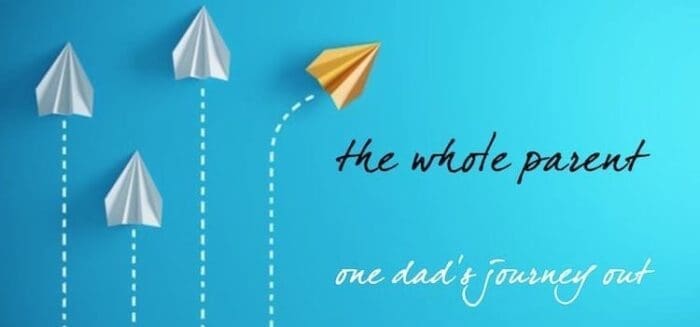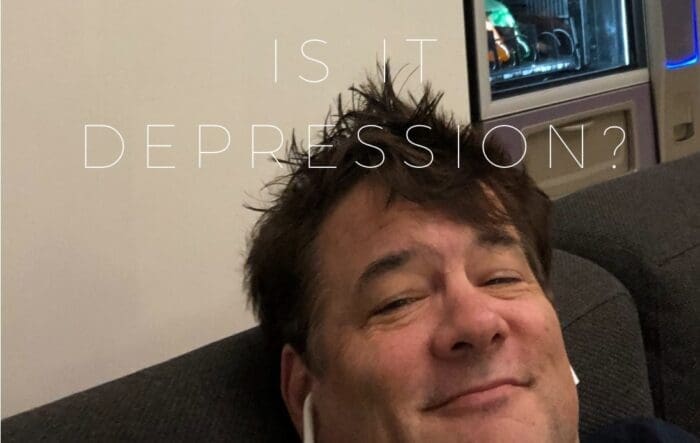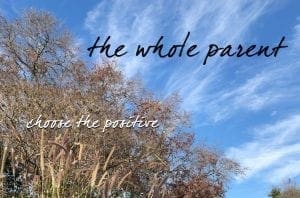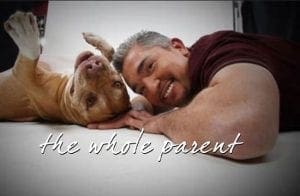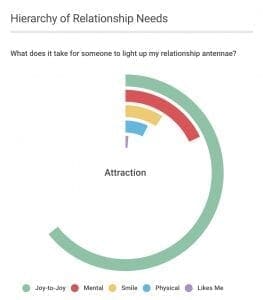Should I tell my partner about my depression?
What is depression anyway? Is depression an excuse to get out of things when I’m feeling lazy? Is depression a way I forgive myself for so many mistakes that I’ve made in my life. Is depression part of how I explain my divorce? Is depression a life sentence? Are depression and bipolar the same thing? What do I reveal in my relationship while we are still getting to know each other?
Depression Is An Ugly Beast
My depressive response to life showed up in my early teens. I was in prep school up in New Hampshire (my first time away from home in Texas) and my dad was actively killing himself with alcohol and I lost my mind. I lost my purpose. Most frighteningly, I lost my ability to concentrate and study effectively enough to compete at this elite school. In summary, my mental capacity was short-circuited by my overwhelming concerns about my father’s drinking and downward spiraling health issues. I was a fifteen-year-old boy and my dad was killing himself before my very eyes. I lost my shit.
Was that depression? Was that circumstantial, existential, pain? The definition is less important than the symptom. I was depressed for sure. My circumstances in life were a bit difficult. And I was obsessively thinking about my dad and his apparently imminent exit from my life. Boys love their dads. Boys need their dads. Even mean dads, as my dad could easily be described, are dads.
What Is My Depression and What Is My Life?
I’ve had numerous discussions with my meds doctor about my depression. We continuously ask the question, “Is this depression chemical-related or existential?” What that means is, sometimes life is a bitch. And some of us don’t do all that well under the “bitch existence” pressure of it all. I’d say back in my freshman year in high school I was suffering from existential depression. Life was shit. My chemistry got all fucked up by the existential crap I was dealing with, both my dad and my hardass school.
So, What is Depression?
We talk about it all the time. Most of us are comfortable admitting we’ve dabbled in depression at various points in our life. In fact, this revelation is actually a connective point for me as I’m getting to know someone. If they nod and smile when I say, “I’ve dealt with some depression over the years,” then I know I’m dealing with a fellow traveler. We’ve all been depressed at some point in our life. (If you don’t feel this statement is true about you, congratulations, and kudos.) Our ability to own our sadness and deal with it with creative and potentially pharmaceutical strategies is part of our life’s work. We all have sadness. We all have tragic things happen in our lives. It’s how we deal with it that makes the difference between a “depressed person” and a “person who is grieving.”
When we get sad things start changing in our bodies. The chemistry of sadness is part of our physical bodies as humans. Animals get sad as well. We get sad. In most people (people without “depression”) that sadness and chemical flooding is temporary. In a depressive person (a person with depressive illness) that chemical flood can run away with our entire lives. Once on the slippery slope into darkness, some of us, have a very hard time putting on the breaks. We can’t jump off the downward spiral into depression. We see the fall happening, we ask for help, we seek medication and medical attention, and we STILL FALL INTO DEPRESSION. This sucks.
I am learning to love my HIGH self and my LOW self equally. It’s a ninja mind trick, but I can do it.
How My Depression Looks Today
I fell just a few months ago. I was happy and comfortable in my life. Yes, there were several big tragedies that had been gripping at me from the dark recesses of my heart, but I was going along just fine. Then I went to NYC for a vacation with my kids. (My teenaged kids that I don’t see much anymore.) We had an amazing time. We saw Dear Evan Hansen, an amazing Broadway play about depression, high school, and all that messy emotional stuff that happens for all of us when death strikes.
Anyway, we had an amazing time. It was three days of life that I will relive for years to come. Walking around New York with my kids, listening to them, joking with them, loving and laughing with them, it was a highlight of last year. And then it ended abruptly and we were back in Austin, Texas.
I am the non-custodial parent in my divorce. That means since my wife asked for it, I’ve seen my kids about 30% of the time. That’s 70% less than I wanted to. The divorce was not my idea. And the divorce caused me some serious existential sadness. Now, as my kids have become teenagers with cars, they asked to not do the weekend swap thing. So I see my kids by appointment. And if you’ve ever tried to get your teenager to meet you for coffee, lunch, dinner, a movie, you’ll understand it’s always a long shot. They’ve got busy lives. They are separating and growing into individuals. That’s okay. And that’s exactly where they should be.
My Return to Depression Last Year
As I described it recently to my therapist, “Last November when I fell off a cliff.” What happened is my joy at being with my kids was quickly reset to being without my kids. I had lost my brother the previous August. My girlfriend, at the time, had freaked out and left as well. So, when I hit Austin again, I was primed for a fall into depression. And try as I might, I slipped over the course of the next few days, into my “life under a rock,” as I also described it to my therapist.
“Wait a minute,” she said, when I talked about my dark period. “I think that’s more about how you are framing your sadness, more about your assessment of your depression, rather than what I saw over the last several months.”
Here’s what I learned from our discussion:
I was taking care of myself as best I could during this low period. I had a lot of things to be sad about. AND, here’s the big win, I kept doing all the things that I needed to do. I kept up all of my commitments to friends, to therapy, to work, to my al-anon sponsor. I went to al-anon meetings. I asked for help. I got back on some meds to help lift me up off the floorboards. I did all the things I knew to do that might keep me from getting depressed. Still, I got depressed. At least, that’s what I thought.
My Mood Scale (ranking my mood on a scale of 1 – 10)
It is useful to keep a mood journal when you dealing with moods. In my life I have developed a scale where I can rank my mood and give my family and support team a self-assessment about where I am in regards to my mental health. On this scale 1 = hospitalization for depression; 5 = normal and potentially boring life; 10 – hospitalization for mania. In my life I’ve been in the 10-zone about three times, all in my teens. Since that time I have regulated my UP moods somewhat effectively. I have been less successful at managing the DOWN moods. I’ve not been hospitalized since my teens either, but I’ve been close. I’ve been suicidal. I’ve been hopeless for long periods of time.
What I learned about my recent darkness: I fell down to a 3. Functioning a bit slower, but still functioning. And more importantly, getting all my shit done. While I was at a 3 I was doing all the things I could to raise my mood, to improve my support program, to get help. I was asking for help. I was getting help. And I was taking advice and doing more and more activities and exercises that would lift my spirits again.
“You were not clinically depressed,” my therapist said, with glee. “You were at a highly-functional 3, you were just not happy about it. Your self-assessment is that you were depressed. My assessment is that you were unhappy, dealing with a lot of heavy existential events in your life, and still managing quite well within your range of emotional health.”
Emotional Health
I was not depressed. I was sad. I was doing all the stuff and I was still sad. So I was unhappy with my situation, but I was not “depressed.”
I like to live my life in the 6s and 7s. When I get to an 8 I begin my emergency deceleration process. When I’m not a bit above normal I feel bored and boring. Nobody hires a consultant who’s at a 5. They only hire 6s, 7s, and 8’s. But 8’s might feel too manic for most business clients, even if we’re super effective and efficient. We’re also overbearing and driven by the sound of our own non-stop talking.
I was at a 3 and I hated it. I had a lot to be sad about and I was dealing with those feelings. I was doing all the healthy things I could do. And in the midst of being at a 3, I was still taking care of myself and all my commitments. Heck, I landed two new clients, I went out on a few first dates (even knowing I was in no condition to date), and played tennis every Friday night in a mixed doubles league.
I was doing everything I could to life myself up again. I was at a 3. I wanted to be back in the 6’s and 7’s.
Should I Tell My Partner About My Depression?
Absolutely. If they respond with fear and disgust, you might as well get that over with now and move on.
Today, I feel like my depression is a thing of the past. (That’s another problem with depressive folks, we forget about the lows when we’ve returned to the highs.) But I know that I will have sad moments again. Can I keep my moods, even in the DOWN periods to a functional-3? I don’t know. That’s my plan. But what I do know, is that I can give myself a break for being at a 3 in a new light. I was sad, I was unhappy about being at a 3, but I was still living life as best I could. This time, I never gave up. This time, I was not hopeless, I was just sad.
That’s a bit change for me. It’s okay to be sad. It’s okay to be at a 3. As long as I’m okay with it, it’s okay to have a little depression in my life. My partner has got to be on the same page, or icebergs are in the water ahead. Should you tell your partner? Yes. The timing, however, is a more nuanced thing. Get a sense of where they are on the spectrum of depression and emotional health. And when the time is right, drop a little line like, “I’ve had periods of depression in my past.” and see how they react. That will tell you all you need to know.
Moving Forward with Depression
I know I’m in a happy period. I know I will hit some sad periods. But today, I know that part of my unhappiness is just my frustration at not being in 6s and 7s. I can manage that easily. How? By giving myself a break. I am learning to love my HIGH self and my LOW self equally. It’s a ninja mind trick, but I can do it. And I can suffer less in the 3’s when I accept them as they come and do all I can get back up and keep going.
Keep going. You’re just feeling down and it will pass. It always passes. I believe in you.
Always Love,
John McElhenney – life coach austin texas
Facebook | Instagram | Pinterest | @wholeparent
The new book is here: Here Comes the Darkness: Surviving and Thriving After a Mental Illness Diagnosis.
More posts from the Dark Days section of The Whole Parent:
- If You’re Happy and You Know It: Our Spiritual Connection w/ Each Other
- When Hopelessness Enters the Equation
- Depression: Yeah, Me and My Broken Leg
